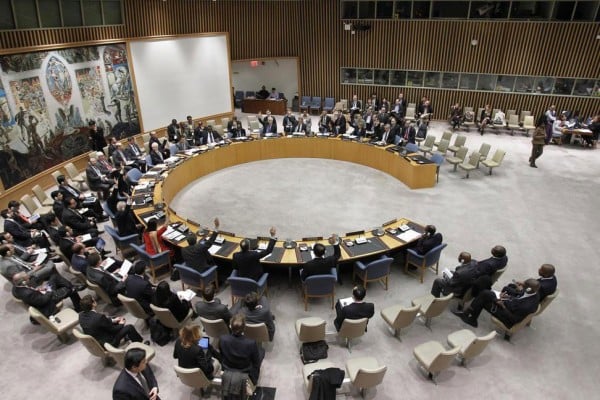
Hopefully the newly approved intervention force for the DRC can do better than its predecessor MONUSCO.
In March, the United Nations Security Council came to a uaminous and monumental decision by approving an intervention brigade through Resolution 2098, which permits the use of offensive tactics against the M23 rebels and other militia groups operating in the eastern provinces of the Democratic Republic of Congo (DRC). The U.N. continues to maintain its largest peacekeeping force in the DRC, labelled MONUSCO, but that force is mandated to protect civilians and only use defensive strategies. Although the new group will fall under the same umbrella and command, the new force’s mandate has been drastically expanded to permit offensive combat operations to “neutralize and disarm” Congolese rebel groups, particularly M23.
This new brigade, which will be made up of troops from across the continent, including Malawi, South Africa, Tanzania and Mozambique, will consist of three battalions, or approximately 3,000 troops and has an operative authorization that will last one year. This force is important to the region for many reasons.
First, the UN Security Council has recognized the failure by the peacekeeping mission MONUSCO, originally called MONUC, which has been in operation for almost 15 years. Despite its mandate to “protect civilians under imminent threat of physical violence,” the inhabitants of the DRC, particularly within the eastern provinces, have dealt with a near constant state of conflict since the U.N. force put boots on the ground. The citizens have suffered from war crimes and crimes against humanity such as rape, pillage and murder occurring right under the noses of the U.N. forces madndated to protect them. Last year, the M23 rebels seized Goma, with little resistance from a U.N. force stationed nearby. It is no small feat for a body such as the Security Council to admit to past blunders.
This new force is not expected to sit back and watch as the countryside is ravaged. With a mandate to carry out targeted offensive operations, they have the potential to bring peace to the region once and for all. This may help build an environment conducive to development. We can only hope. The reality remains that no semblance of developmental infrastructure can exist against the backdrop of a state in perpetual war, where the average citizen fears for their well being or has already fled their home.
The second and maybe most important facet this new force brings to the table is the threat of interference against the M23. While talks between the DRC government and M23 began in December, they stalled as of mid-February as divisions within the rebel ranks forced them to abandon the negotiation table until they could once again unify. Now talks have again resumed. The rebels have taken steps to give the impression that they would not back down from a UN force, such as labelling this move an act of war, as well as spreading anti-U.N. propaganda to the populace. The bottom line remains that this organized brigade represents a threat to the rebel position, and one that cannot be ignored. This may force the hand of M23 leadership to consent to a peace deal before facing the possibility of fighting enemies on multiple fronts. If this move brings about a peace deal, then it will have already been successful.
One concern is that this force may do more harm than good. The potential is certainly there. Obviously, the rebels, as natives of the region know the terrain much better than the U.N. force. However, having a bootprint in the area for almost 15 years, leadership from MONUSCO should be able to help out if fighting ensues. Additionally, militia and rebel groups in the area have the tendency to lash out against civilians in the wake of war. With an offensive force threatening the shaky sovereignty the M23 maintains, it may feel betrayed and strike against the local civilians. This is where the U.N. peacekeeping force needs to finally show its worth. If one group is on the offensive, the rest should be in a position to defend civilians from such attacks. With over 17,000 troops manning MONUSCO posts, this should not be a problem. This will help discourage brutal crimes and give the rebels few options for advancement or retreat.
Also, despite the potential effectiveness of the mandate by this offensive force, they certainly have the faculty to be just as inept as their predecessors. Falling under the management of MONUSCO may water down their abilities due to political posturing. However, with the U.N. Security Council recognizing the need for results after all of the money that was spent in the past, the new brigades may yet avoid this fate.
Ultimately this move was a necessity for all involved except the rebels. The pattern of the twenty year conflict in the Congo of the rebel leadership seemingly passing from one person to the next without hope for peace needs to end. Even when peace is signed it has been habitually cast aside in favor of further war and the ability to smuggle minerals from the lawless eastern provinces. A series of failures by previous missions have brought the DRC no closer to peace and sustainable development than they were 2 decades ago. The fact that the U.N. Security Council realized this and responded in kind bodes well for the future of the nation. Who knows, maybe the rebels will realize they have reached the end of the road and settle with the government? In the end, doing something different is preferable in this situation than continuing down the same fruitless path.